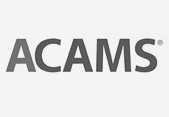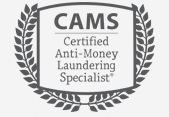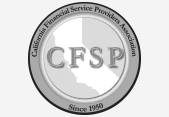Obtaining a money transmitter license (MTL) in the United States is a multifaceted process that requires adherence to federal and state regulations. These licenses are essential for businesses that transfer funds or facilitate financial transactions on behalf of others, including electronic money transmission, currency exchange, and handling digital assets such as cryptocurrencies.
The licensing process involves several critical steps, including federal registration, state-specific applications, and the establishment of risk-based compliance programs.
Understanding Money Transmission
A money transmitter is a type of Money Services Business (MSB) that transfers funds between parties. This includes services like wire transfers, electronic funds transfers, and the issuance or redemption of payment instruments such as money orders. With the rise of digital currencies, businesses dealing with cryptocurrencies are also often classified as money transmitters and are subject to corresponding regulations.
Federal Registration Requirements
At the federal level, businesses classified as MSBs must register with the Financial Crimes Enforcement Network (FinCEN), a bureau of the U.S. Department of the Treasury. This registration must be completed within 180 days of commencing operations and renewed every two years.
The process involves submitting FinCEN Form 107, which requires detailed information about the business, including its ownership, operational structure, and the nature of services provided. Compliance with the Bank Secrecy Act (BSA) and its subsequent regulatory updates is mandatory, necessitating the implementation of an Anti-Money Laundering and Countering the Financing of Terrorism (AML/CFT) Program designed to detect, prevent, and mitigate financial crimes.
State Licensing Requirements
In addition to federal registration, money transmitters must obtain licenses in each state where they conduct business. Registration is performed through the Nationwide Multistate Licensing System (NMLS) for most states, although some require direct registration. Each state has its own regulatory framework, leading to licensing requirements, fees, and processing time variations.
Common prerequisites across states include:
- Surety Bonds – Applicants are often required to secure a surety bond as a financial guarantee to ensure compliance with state regulations. The bond amount varies by state, ranging from $25,000 to over $1 million.
- Background Checks – Comprehensive background checks, including FBI criminal history based on fingerprinting, credit reports, and searching against the Office of Foreign Asset Control (OFAC) Sanctions Search List, are typically conducted on the business’s principals and key personnel.
- Financial Statements – Applicants must provide audited financial statements to demonstrate financial stability and solvency. Some states require personal financial statements for owners, executives and officers.
- Net Worth Requirements – Some states mandate a minimum net worth for applicants (up to $500,000), ensuring they have sufficient financial resources to operate securely.
- Business Plan – A detailed business plan outlining the operational framework, target markets, and growth strategies is often required.
- AML/CFT Program – A robust risk-based compliance program, including BSA/ AML/CFT/OFAC framework and Know Your Customer (KYC) policies, must be established to adhere to federal and state regulations.
- Employee Training Program – A comprehensive employee training program is essential to ensure staff understands regulatory requirements, BSA/AML/CFT/OFAC procedures, and fraud prevention measures.
- Registered Agents – A list of all agents and company locations that perform money transmission activity.
- Resumes for Control Persons – A resume for all owners, board members, and Compliance Officers should be included in the AML/CFT Program.
- Independent Review – An Independent Review involves a thorough, unbiased assessment of the company’s BSA/AML/CFT/OFAC policies, procedures, and internal controls.
- Risk Assessment – A Risk Assessment systematically evaluates exposure to financial crimes, such as money laundering and fraud.
- IT Policies and Procedures – Several states require comprehensive policies and procedures covering systems and data protection.
- Business and Trade Name Registration – Companies are required to register with each state in which their customers reside and register any trade names/DBAs.
It’s important to note that the information above varies by state; licenses are typically renewed annually, and businesses must remain vigilant in maintaining compliance to avoid penalties.
Navigating Multi-State Licensing
Due to varying state requirements, the licensing process can become complex and time-consuming for businesses operating in multiple states. The Multi-State Money Services Businesses Licensing Agreement (MMLA) program was established to address this challenge.
This initiative aims to streamline the licensing process by fostering reciprocity and standardization among participating states, reducing redundancy, and expediting approvals. Engaging with the MMLA can significantly ease the administrative burden for multi-state operators.
Steps to Obtain a Money Transmitter License
- Assess Business Activities – Determine if your services classify your business as a money transmitter under federal and state laws.
- Pre Application Preparation – Proper preparation helps prevent delays, reduces the risk of application rejections, and demonstrates the business’s readiness to meet regulatory standards.
- Register with FinCEN – Complete the federal registration by submitting FinCEN Form 107 within the stipulated timeframe.
- Research State Requirements – Identify each state’s specific licensing requirements where your business intends to operate.
- Prepare Documentation – Gather necessary documents, including financial statements, business plans, AML/CFT Programs, and surety bonds.
- Submit Applications – Apply for licenses in each state, ensuring all applications are accurate and complete to prevent processing delays.
Obtaining a money transmitter license is a time-consuming process that requires meticulous planning, a thorough understanding of regulatory landscapes, and a commitment to compliance. Ensuring your business operates within the framework established by federal and state authorities is advisable.
Maintaining a Money Transmitter License
Once a money transmitter license is obtained, businesses must actively maintain it by adhering to ongoing regulatory requirements. Consistent monitoring and proactive compliance efforts are essential to avoid penalties and ensure the license remains in good standing.
- Ongoing FinCEN Registration – Money transmitters must maintain their federal registration with the Financial Crimes Enforcement Network (FinCEN) by renewing it every two years. Failing to renew on time can result in significant penalties and regulatory scrutiny.
- State Licensing Requirements – In addition to federal obligations, businesses must comply with each state’s individual renewal processes. Most states require annual or biennial license renewals, which often involve submitting updated financial statements, proof of surety bonds, and evidence of continued compliance with BSA/AML/CFT/OFAC regulations.
- NMLS Renewal – For states participating in the NMLS, money transmitters must renew their licenses annually through the platform. This includes verifying and updating company details, submitting renewal fees, and confirming current compliance documentation. Missing the NMLS renewal deadline can lead to license expiration or suspension, disrupting business operations.
- Annual Compliance Oversight – This process involves a comprehensive review of the company’s AML/CFT Program, policies, and procedures to confirm their effectiveness. It also includes evaluating the employee training program, transaction monitoring systems, and recordkeeping practices. Regular oversight helps identify and address compliance gaps, strengthen internal controls, and demonstrate a commitment to regulatory excellence during audits and examinations.
Industry Associations and Resources
Several associations provide support, advocacy, and resources for businesses in the money transmission industry:
- Money Transmitter Regulators Association (MTRA) – Aims to create uniformity and effective regulation of the money transmission industry across the United States.
- Money Services Business Association (MSBA) – Supports the non-bank financial services industry, promoting innovation and development in the payments sector.
- CrossTech – Provides a platform for global money transfer industry stakeholders to collaborate and share insights.
Given the complexities of the money transmitter licensing process, partnering with a compliance professional is highly recommended. Capital Compliance Experts offers a streamlined, systematic approach to help businesses obtain and maintain their licenses. Whether you’re entering the industry for the first time or are an experienced operator, our team is here to guide you through every step with precision and expertise.
Tags: AML, AML/CFT Program, Anti Money Laundering, Bank Secrecy Act, BSA, CFT, Countering the Financing of Terrorism, Employee Training, Financial Crimes Enforcement Network, FinCEN, Independent Review, Know Your Customer, KYC, MMLA, Money Services Business, Money Transmitter License, Money Transmitters, MSB, MTL, Multi-State Money Services Businesses Licensing Agreement, Nationwide Multistate Licensing System, NMLS, OFAC, Office of the Comptroller of the Currency, Risk Assessment









